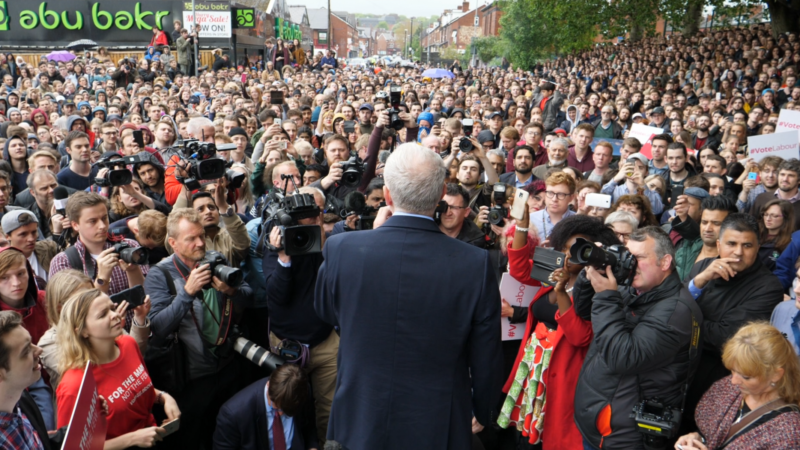
This week, the UK will participate in the 2019 European elections – something that neither the Conservatives nor Labour wanted to do. The governing party is polling terribly in third or even fourth place, behind the Lib Dems, while Labour’s predicted vote share has consistently fallen over the last few weeks. Just as in the recent local elections, neither main party is expected to do well, though in the run-up to this contest both have set unambitious goals. (Labour simply doesn’t want to be outdone by the Lib Dems… what a thing to say just four years on from the coalition.)
Over half of voters say their top priority in Thursday’s election is Brexit. People like to sneer in response, pointing out that MEPs cannot implement Brexit or legislate for another referendum, but I reckon most voters know that the effect of their vote won’t be direct – for the majority, this is about sending a message to Westminster. Neither Theresa May nor Jeremy Corbyn want to talk about Brexit, however, making every election until the matter is settled (even if only temporarily) a nightmare. Of course the parties with the clearest positions on Brexit are doing well. But what should that mean for Labour?
Corbyn has shaped the Euro campaign around the idea that only Labour can defeat Nigel Farage and the far-right, swerving the subject of Brexit while choosing a theme that no Labour member would refuse to support. But for many members and much of the parliamentary party, that isn’t enough. Rachael Maskell, of the Love Socialism Hate Brexit grouping, has written for LabourList today setting out those exact thoughts: “Only a campaigning Labour Party can beat Farage and push back against his hard-right politics of fear.” By “campaigning”, she means campaigning for another referendum.
The current internal debate centres on whether Labour should move towards a more anti-Brexit position or make further efforts to deliver Brexit – a row that has been intensified by the recent success of Farage and his videos showing ex-Labour voters in ex-Labour heartlands welcoming his clear and seemingly reasonable message. The argument that Labour should not seek to overturn the 2016 result is set out in young activist Theo Freedman’s LabourList piece today: Labour risks losing its anti-establishment credentials and key electoral selling point, he says.
Which side is winning? Supporters of another referendum, particularly on the left, were excited by Corbyn’s Andrew Marr interview broadcast yesterday. “I want us to get a good deal and then let the public have a decision after that,” the leader said. Although spokespersons have in the past denied that Labour’s deal would need to be ‘ratified’ by a referendum, as a public vote would only be used to prevent a ‘bad Tory deal’ or no deal, Corbyn seemed to shift Labour’s position.
But it isn’t clear that this a positive development for PVers. The leader also suggested that May’s deal could not be put on a ballot paper as it’s been voted down so many times by MPs. And yet this has so far been considered far more doable than first securing Labour’s changes to the deal and second getting the Commons to demand another referendum. Perhaps the more encouraging news for advocates of free movement is that Corbyn said the principle would be up for negotiation when deciding the future UK-EU relationship, despite Labour’s 2017 manifesto declaring that FOM “will end when we leave the EU”.
Our latest readers’ survey closes this afternoon – if you haven’t completed it already, click here to share your thoughts on voting Labour, Momentum’s new policies and the Tory leadership race expected to be held over the summer.
Sign up to LabourList’s morning email for everything Labour, every weekday morning.



More from LabourList
Turning the page? Labour’s recovery in the polls show a path to 2029 victory
Restoration announce recommendations for NEC candidates
‘Factionalism at the top is weakening Labour – and handing a gift to Reform’